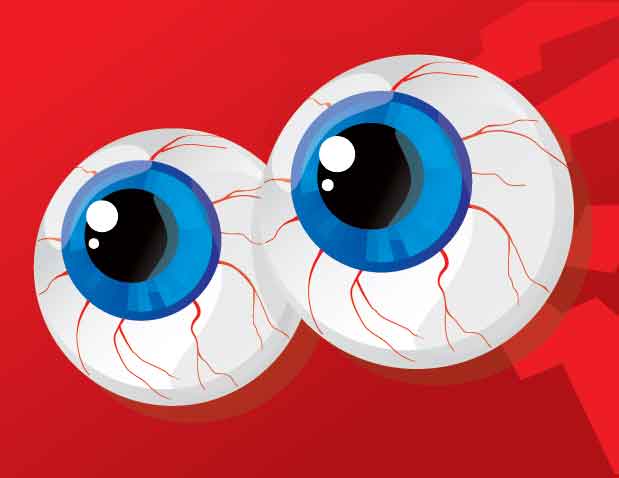
Songza to deliver weather-driven music recommendations
Songza is an online music streaming service that attempts to predict what you're doing or feeling -- based on day, time, device type, location and past behavior -- and provide a curated playlist to suit. It offers playlists for a range of diverse activities such as waking up, working out, commuting, concentrating, unwinding, entertaining, and sleeping.
Today, the service adds a new trick -- providing music to match the current weather. Thanks to a new partnership with The Weather Company, parent to The Weather Channel, Songza will now attempt to use weather data to better predict the "context" or state of mind of the user.

Kim Dotcom takes on politics and Bitcoin with the Internet Party
Kim Dotcom -- the man behind the infamous MegaUpload, and then Mega -- has been out of the spotlight for a little while, but now he's back with renewed strength. This time around he's not trying to launch a new service, but a new branch of his career. Not content with bringing free cloud storage to the masses, Dotcom is now venturing into politics, launching the Internet Party in New Zealand. He finds himself in an interesting position as he is currently fighting extradition to the US where he faces charges of infringing copyright.
As the name suggests, the Internet Party is concerned primarily with what's happening online. The party has a fairly simple mission statement. "The Internet Party was founded on the spirit of the Internet, to get an open, free, fair, connected and innovative society". It is described as "a party that will give you faster, cheaper Internet, create high-tech jobs, protect your privacy, and safeguard our independence".

Spam emails just not quite annoying enough? Google has the solution!
Spam's great, isn't it? I know I just can’t get enough of it. I particularly love the in-your-face, unavoidable stuff that grabs my attention and ultimately has nothing to offer. Love it. This is one of the reasons I was indescribably happy when Gmail introduced its tabbed inbox feature. While some people saw it as a way of keeping their inbox clear, I saw it rather differently. Now I can see all of that level spam -- sorry, I mean "promotional emails" -- in one place: the handily named Promotions tab.
But there are too many emails that are just too subtle. They don’t grab my eyeballs and try to wrestle them from my head. Well, let joy be unbounded, Google has come up with the solution I've been looking for! It's like the company has been reading my mind! I've lost count of the number of times I've thought, "you know what's missing? Really big, graphic versions of my emails. If that was implemented, my spammy desires could be so much more effectively sated!"

Trusted content is the key to consumer purchasing decisions
The internet and social media mean that there is more information available to consumers than ever before. But which opinions do we actually trust?
A new study from Nielsen commissioned by content specialist inPowered seeks to understand how consumers use digital content when it comes to researching and making purchases.

Why the use of personal data for authentication needs to change
We run more and more of our lives online today, with multiple accounts for different services. But many of those sites rely on the same few personal identifiers.
Things like your date of birth, social security number and mother’s maiden name may be common to many of your logins, and that’s a problem. If one site's security is breached then your personal identifiers are compromised.

Keepin' it virtually real -- Facebook buys Oculus VR for $2 billion
It has been a day of purchases today. If Intel purchasing wearable tech outfit Basis was not enough, everyone's favorite social network (or something like that), Facebook has splashed the cash on virtual reality startup Oculus VR. In a deal worth $2 billion, Mark Zuckerberg's company will hand over $400 million in greenbacks, in addition to 23.1 million Facebook shares. The purchase comes just weeks after Facebook bought messaging service Whatsapp for $19 billion.
Oculus VR is most readily associated with gaming, but Zuckerberg is more interested in the communication potential. Millions of people use Facebook to keep in touch with friends, family, celebrities and companies, but the firm wants to take things further. "We have a lot more to do on mobile, but at this point we feel we're in a position where we can start focusing on what platforms will come next to enable even more useful, entertaining and personal experiences", says Zuckerberg in a statement on Facebook.

Google teams up with Ray-Ban to gain some cool for Glass
After trying to drum up more interest in Glass by dispelling some myths believed to have built up around the wearable tech, Google is looking to push things even further, gaining a little cool cred by teaming up with Luxottica the group behind well-known names such as Ray-Ban and Vogue. Teaming up with such a premium brand could be key to the success or failure of Glass, and Google is keen to push Glass as being the next step in the gradual evolution of eyewear.
At the moment, there are more than forty different looks for Glass (once the various frames, colors and styles are factored in), but it is hoped that the new partnership will result in even more designs. Love them or not, Ray-Ban and Vogue are names you will be quite familiar with, and it seems as though this is something that Google is keen to latch on to -- although it is, of course, a household name in its own right. "Luxottica understands how to build, distribute and sell great products that their clients and consumers love -- something we care deeply about at Glass, too," purrs Google on its Google+ page.

Basecamp held to ransom as hackers launch massive DDoS attack
Basecamp, the online collaboration and project management service, found itself on the receiving end of a massive DDoS attack yesterday as 20Gbps of data was pelted at servers. If this was not enough, the attackers tried to hold Basecamp to ransom, saying the server flooding would not come to an end until a fee was paid.
While the attack was underway, Basecamp was effectively taken offline but the team behind the service refused to bow to the ransom demands. Beavering away behind the scenes, technicians were able to restore service to 95 percent of users without parting with any money.

UK digital download tax will cripple sales and damage the industry
Last week in the UK, the announcement of the new budget for the country was closely watched as citizens kept an eye on whether they'll be paying more for beer and whether taxes are going up or down. There's a lot to talk about in George Osborne's 2014 budget, but this is not the place to discuss most of what it involves. One thing is of interest for technology enthusiasts, though. The cost of digital downloads -- meaning ebooks, music and apps -- could be set to rise as the chancellor (the guy holding the purse strings) closes a tax loophole.
At the moment, companies offering digital downloads are able to avoid paying taxes in the UK by routing them through another country where taxes are lower. This is not a new technique, and there is nothing illegal about it. It is a loophole that has been exploited for many years, but now plans are afoot to close it off. What is this likely to mean? Well, it should come as no surprise that, ultimately, it's probably going to lead to higher prices for people in the UK.

As wearables flounder, Google struggles to dispel Glass 'myths'
I have not hidden the fact that I'm yet to be sold on the idea of wearable tech. A post about smartwatches failing to take off lead to some interesting discussions, and many people leapt to the defense of watch 2.0. Judging from the comments, it seems that there is some love for wearable devices, but it still doesn't appear to be translating into sales. It's not just wearables fans who are quick to defend the honor of their beloved devices, the manufacturers are doing so as well. Google is the latest proponent of strapped-to-the-body-tech, which is hardly surprising considering the company's vested in the market with Glass.
Google Glass has received a bad rap, or so Google seems to think. Not happy to sit back and let the rumormongering run its course, Google has instead written a blog entry aiming to dispel some of the "awesome urban myths" (their words, not mine) that have built up around the technologically advanced spectacles. Considering this is a product that is yet to receive a full public release, it is interesting to see that Google already feels the need to stick up for its baby. But that said, this is a device that has seen the term "glass-holes" coined, even before launch.

NSA lawyer says data collection occurred with tech firms' 'full knowledge and assistance'
The NSA story isn't new. Scratch that. It's not really a story; it's a saga. Just when it seems safe to feel that there can't possibly be any more revelations to knock us sideways... oops... there's another little surprise for you! Just a week ago, I argued that Google's encryption of Chinese web searches amounts to little more than a PR exercise, designed to try to get the disgruntled user back on its side. This is not something that is related to the NSA revelations. When we found out that the likes of Facebook, Microsoft, Google and Yahoo (to name but a few) had been handing data over to the US government, all of these companies were falling over themselves to appear to be doing everything they could legally do to let their customers know what had been happening with their data.
Of course, it's not just the UK that has this problem, although that’s certainly where the attention has been focused -- the UK had (or possibly has) its own Optic Nerve program which was used to spy on webcam chats. The story we have heard time and time again is that these companies did not know what was going on. That the government had been collecting data without their knowledge. There were concessions that in some cases, FISA requests had been received but there were limitations on what could be publically revealed. Each company tried to outdo the others by appearing to reveal as much data as it could as quickly as humanly possible.

ToneFone turns using your iPhone into a workout
Apple’s iPhone has been getting lighter (and thinner) with each iteration, and while most of us view that as a good thing, UK based healthy living brand Desirablebody.co.uk has a different opinion, believing much, much heavier phones could help us get fitter.
"In the 80s carrying around a mobile phone meant carrying some serious weight -- and that could sometimes be a mini workout all by itself," Fitness Manager, James Finlayson states. So Desirablebody.co.uk has introduced a case that takes mobile phones back to their roots and transforms the iPhone into a dumbbell. No, seriously.

An impending black swan for electric cars
A black swan is what we call an unexpected technical innovation that disrupts existing markets. Intrinsic to the whole black swan concept is that you can’t predict them: they come when they come. Only today I think I’ll predict a black swan, thank you, and explain exactly how the automobile business is about to be disrupted. I think we’re about two years away from a total disruption of the automobile business by electric cars.
One of the readers of this column is Robert Cumberford, design editor at Automobile Magazine. Nobody knows more about cars than Bob Cumberford, who has written about them for more than half a century. Here’s what he told me not long ago about the Tesla Model S:

Cloud storage price wars! First blood to Google!
And so it begins. The price war in the cloud. There are few tech companies that would not like you to store all of your files in the cloud, and there are several big names vying for attention. The obvious contenders for the crown are Microsoft with SkyDrive (sorry, OneDrive), Dropbox and Google Drive -- of course there are plenty of others, but these are the names that trip readily off the tongue. As computer users we have become increasingly comfortable with the idea of storing files online; in fact we almost demand it. If an app or service does not offer cloud storage, there are instant complaints about the lack of between device syncing.
But cloud storage does come at a cost. On the face of it, online storage is available free of charge. All of the big names -- and many of the smaller ones -- provide gigabytes, in varying quantities, of space gratis. But for cloud storage to be truly useful, everything needs to be stored there. The 5GB of free space from one provider is not to be sniffed at, but 5GB disappears very quickly. Opt to store all of your photos online, for instance, and the gigabytes will very quickly be eaten up.

The most popular stories on BetaNews this past week March 9 -- 15
This is the week that saw the web celebrating its 25th birthday and Tim Berners-Lee took the opportunity to call for a web bill of rights, which I argued is essential for the future of democracy.
Another week means a fresh batch of security concerns. In Europe, users were warned of the dangers of connecting to public wifi hotspots, while a new report found that cybercriminals are becoming increasingly sophisticated in their techniques. Ian was on hand with advice for anyone trying to tackle or avoid viruses.
